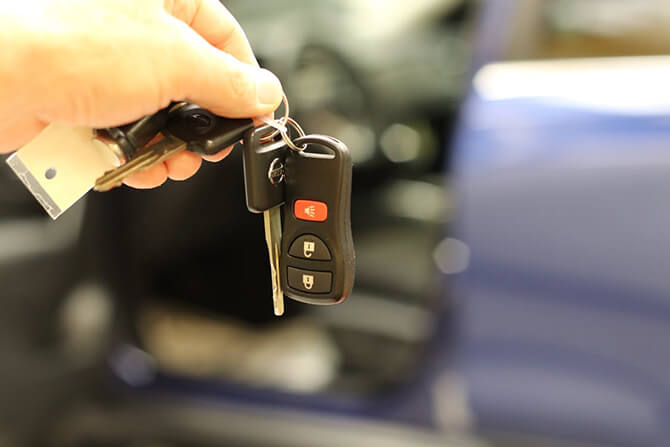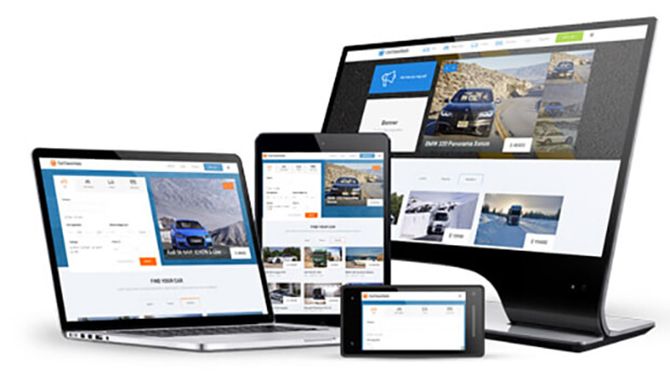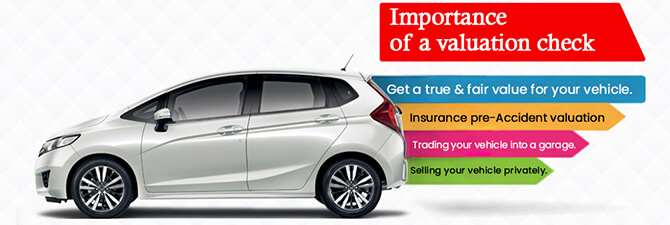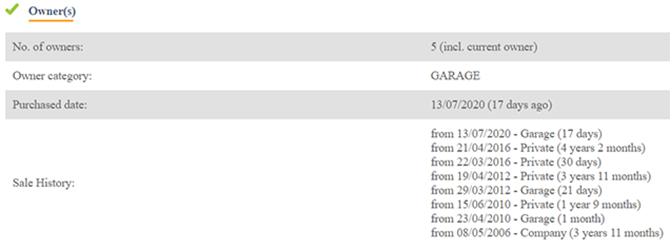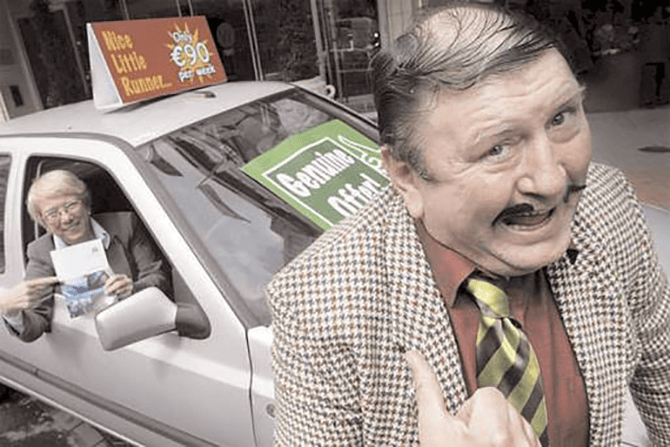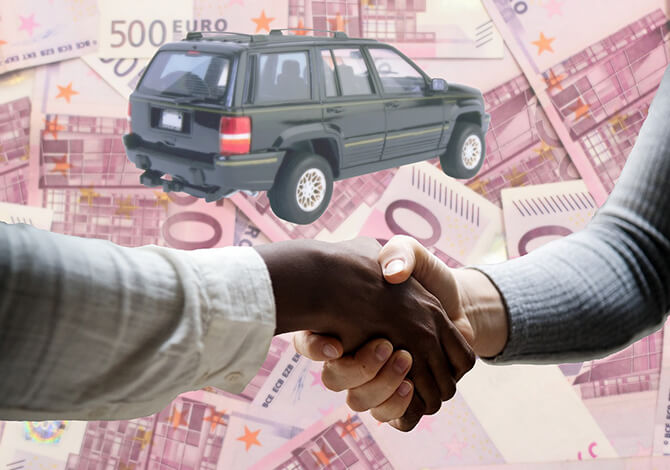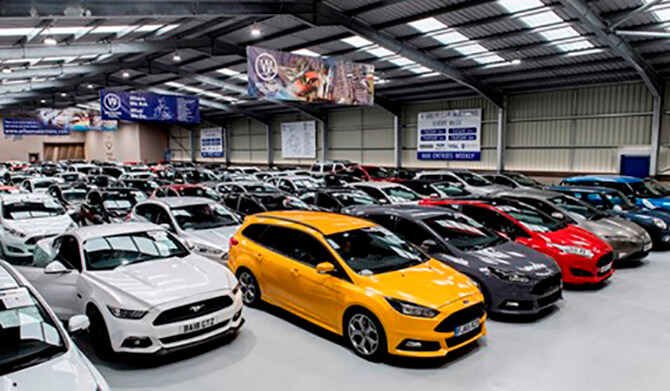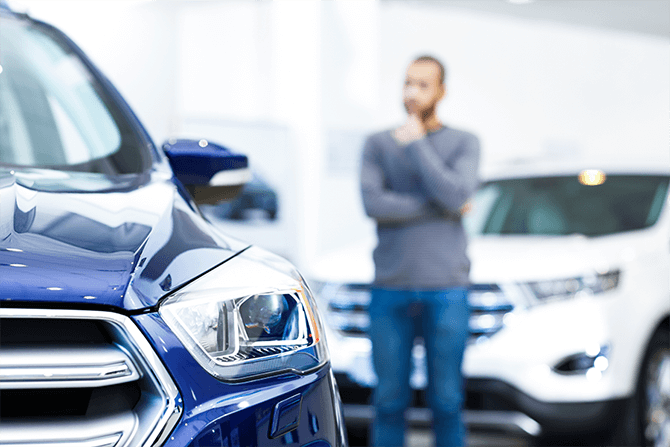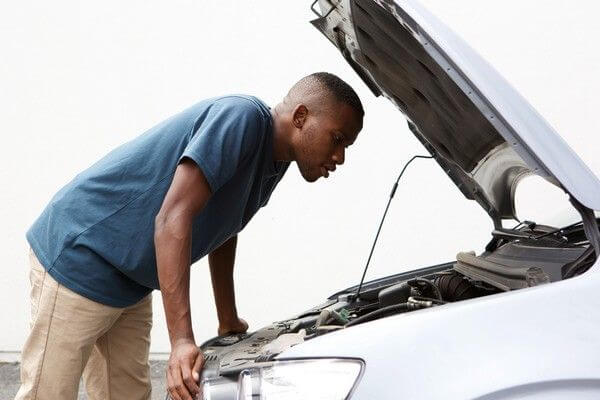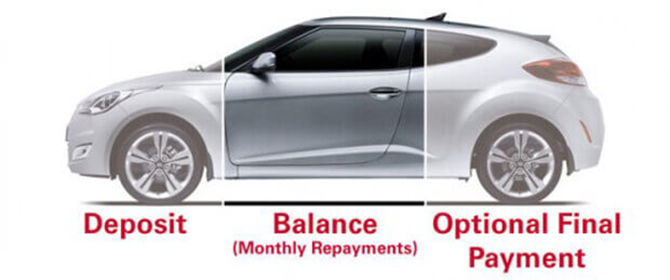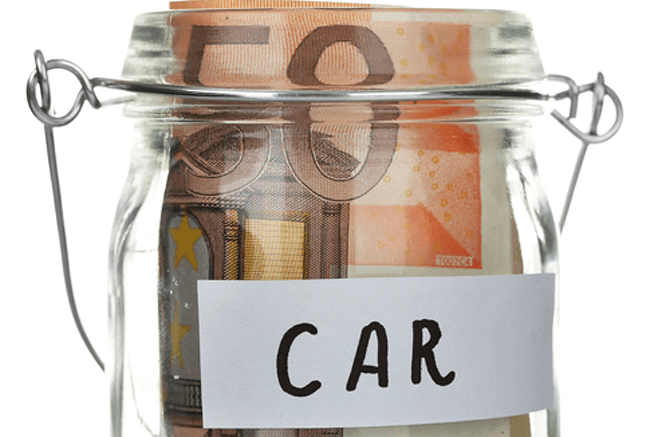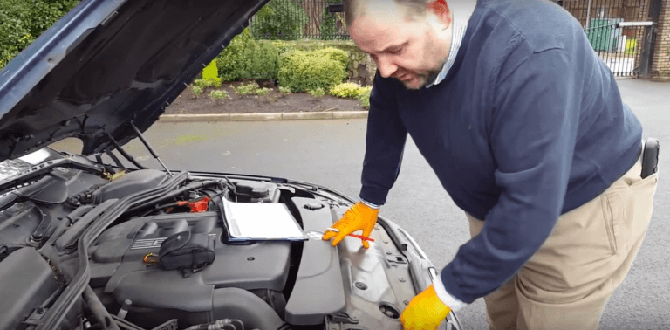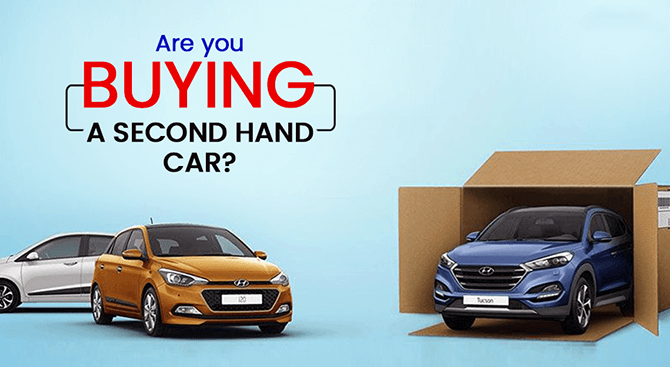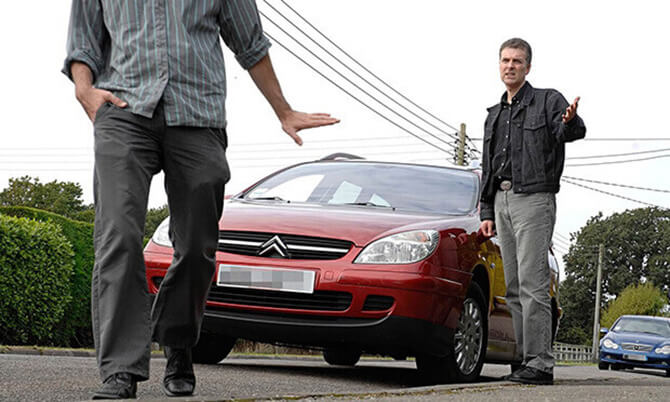Some important tips for buying a used car
Buying a used car? Sometimes this can be a minefield so we have come up with some of the most important things to do before you part with your cash.
To start, it is always good to do your research first before you take any other action, compare prices and find out how to get the best deal you can possibly get.
Searching online for the perfect car
We all know the importance of doing our homework before we make a big purchase and usually our first port of call is one of the online classified websites.
When thinking of buying a used car from a classified website such as DoneDeal or Adverts.ie it is so important to do your homework.
Figure out what kind of car you are looking for and especially what kind of car you need as wants and needs are not always the same thing.
A good idea is to talk with family and friends and get any advice you can on your choice as they may own a similar car or have owned one in the past?
When shopping for a car, don’t just focus on the price as there could be an inherent false economy in buying the cheapest car you can find. Buying on the cheap can sometimes cost you far more in the long run for repairs and higher maintenance costs down the road.
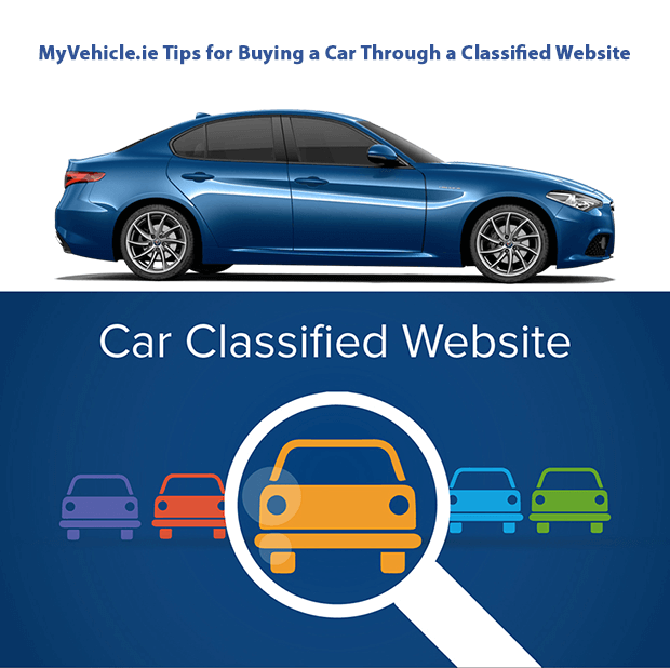
Should I check the vehicles’ background?
After your initial research online you should do a vehicle background check on the car that you are interested in. In many instances you will be able to identify the vehicle registration number from the pictures posted on the online classified website. A history check will give you all the historical information you need to avoid potential future problems associated with the car.
Here are some important tips before you buy from an online classified website.
Prepare Questions
Private sellers on classified websites often describe their cars poorly so it's important to recognise this. You need to think about what you need to know about the vehicle and have a list of questions you want to ask about the vehicle. For example, are there any issues with the car? Why are they selling it? After researching you may have found out about common faults related to a particular vehicle and ask the seller if these signs are exhibited in this particular car?
Make an arrangement to view the car in a safe place, ideally at the seller's place of residence and the address the vehicle is registered too. Sometimes sellers are hesitant to bring you to their place of residence but they should have nothing to hide. The important thing is that if you are buying a car from cash, you should always bring someone with you for your own security and be very careful about buying cars from quiet public car parks such as supermarket car parks.
Make the call
At this stage, you will want to make contact with the seller. Be prepared that the car you have set your heart on hasn’t already been sold to another buyer who got in there before you so try not to get your hopes up too much. You will have prepared some preliminary questions about the car so you can ask them over the phone or in and it is a good idea to keep the majority of your questions for the seller for when you actually meet in person.
Ask the seller
When you meet the seller, you will obviously have a good look around the car. You will probably have a list of questions that you have prepared for the seller. For example, Is he/she the registered owner of the car? Is his/her name on the vehicle registration document? If not, why not? Ask about the number of previous owners, mileage, reasons for selling, if it’s insured/taxed/and NCT certified etc. Ask to look at a documented service history of the vehicle.
By asking all the right questions of the seller you will be able to make an informed decision on your purchase. By also asking the following questions, you can gauge the demeanor of the seller and detect any dishonesty or disingenuous responses?
Remember, that you will pick up on any deception, if the answers to the questions are not what they really should be? Run these past the seller and see what they say:
Can I see the logbook?
When buying a used car, it is imperative that you see the logbook (Vehicle Registration Certificate) and verify that the seller is actually the owner of the vehicle. If the seller is not the owner, for example, they are selling the vehicle for a family member or friend, ask to see some identification and satisfy yourself that they have the authority to sell the car.
Has the car ever been in a crashed or damaged?
This is a good test question and you will be able to tell from the response if the seller is genuine as you will have a gut feeling if they are holding back on something they should be telling you? Establishing the honesty of the seller at this early stage of the buying process is a good tip to remember.
Is this the original factory paint work?
This is another good question like the last as you are looking for trustworthiness in advance of all the questions you will ask after this
Does the car have a full service history?
Ask to see the service booklet and any invoices that the owner has. A full service history tells you that the previous owner has taken care of the car and has not misused it. Knowing all the work that has been done on a vehicle can give you a general sense about the cars overall reliability.
Does the car have an NCT certificate?
The NCT is compulsory and if the car has no NCT, you need to ask why? All cars must display the NCT disk on the windscreen, so check this carefully and note the last mileage reading and compare this with the odometer. Ideally, you want to buy a used car that has just recently passed its NCT and for this you may pay a little more but it is well worth it.
How many owners has the car had?
The number of owners will be displayed in the logbook, but do remember that if the vehicle was originally from the UK, for example, ity will have had previous owners over there. A seller may advertise an imported vehicle with just the Irish owners so it’s important to have a car reg check done so you can tell how many UK owners the car had. Obviously, the fewer the owners, the better.
Why are you selling the car?
This is an important question because if an owner is selling a car after just having it for a short period of time, it may indicate that they are somehow unhappy with the vehicle for some reason? If the car is in great condition and perfect working order, why sell it? This is always a good question to put to any seller. Be aware though, that many may be simply upgrading to a newer car, a bigger car for family reasons or have been offered a company vehicle.
Is the price of the car negotiable?
It never hurts to ask for a lower price than the asking price. Always barter on the price and try to push for any kind of discount you can get, even if it's just the price of a tank of fuel.
Where to buy a used car?
Whether you are buying from a dealer or privately, always ask questions, organise a meeting to view, test drive and verify documentation. The Vehicle History Check document will give you ample topics for asking questions of the dealership and they will be only too helpful to answer any questions you have.
Buying from a dealer
If you are looking to buy a high quality used car at a reasonable rate, one option when deciding where to get your next vehicle is buying from a dealership rather than directly from the current owner through classified advertisements.
This can have great advantages for customers looking for a car or van and there can be a number of benefits to purchasing a pre-owned vehicle through a reputable car dealership rather than from a private seller.
There are certainly more advantages in buying from a dealer compared to buying from a private seller. Here are the Top-Ten reasons to buy from a dealer:
- You can have more choice
- Higher quality vehicles
- You will get greater buyer protection
- Room for negotiation on price and extras
- You can trade in your old car
- In general the vehicle will be safe to drive
- The vehicle may be serviced and valeted
- You may be offered a warranty
- A dealer can offer you finance
- After sales services and peace of mind

If you decide to buy a pre-owned car from a dealership it will offer you greater assurance and legal protection than from a private seller. It can eliminate many of the risks associated with purchasing a car and a customer is less likely to run into difficulties including other hidden costs associated with the car.
Buying from a dealer gives you more security as you will have a guarantee with your vehicle, which you don’t get with a private seller. This means the car has been involved in an official course of inspections and possible repairs of the car.
When buying a certified pre-owned car from a dealer you may be able to receive elements to the car that you wouldn’t get if you were to buy a car from a private seller, which can be a great advantage. This could be new tyres, fully serviced, valeted, NCT, CVRT, etc.
The dealer will usually handle all the paperwork and any financing options associated with the change of possession of the car and car registration making it hassle-free for the customers and takes a lot of the pressure off. It also may be easier to look for a loan when doing business with a dealer as they can be considered more trustworthy.
You may cut back time when looking for a pre-owned car as you may only have to visit one or two car dealerships before finding a car while this process could take much longer when dealing with private sellers. They can offer you a wide selection of pre-owned cars in one place, from one supplier
It is easy to say that you won’t pay a dealership their asking price for a specific car, but negotiating with the dealer to accept a lower price is something else entirely and can be a daunting task for any individual.
It can be a little daunting for some to negotiate price deals with professional sales people, but by following these tips you can make the best choices for you.
When you are sure you have found the car that is just right for you, your first step should be to do some homework on the vehicle itself. It is a good idea to know how much the car is worth and compare that with the asking price.
By simply knowing the registration number, you can easily find out Ireland’s Current Automotive Price (iCAP) for any vehicle to get a true and fair price for the car.
By knowing the Open Market Selling Price (OMSP) of the vehicle, you can leverage it to your advantage when bargaining with the dealership.
Once you know exactly what the car in question is worth and it is in your price range, you should set out a floor price, usually between 5% and 15% lower than the average selling price, and a ceiling price, the maximum amount of money you are willing to pay for the vehicle knowing what the value of it is.
The dealership will try and convince you to spend more money on the car than your maximum limit and probably won’t accept your floor offer. The prices of cars are anything but concrete so you can almost always get it for a better price than what the dealership is asking for.
We recommend that you ask the dealer for a straight sale price and a separate price if you were to trade in your current vehicle against the vehicle that you are interested in. It is a good idea to research the value of your current vehicle first to get the OMSP before going to the dealer, so that you have a price in mind that you can tell the dealer you were hoping to achieve.
When negotiating with the dealer, you must be armed with as much information as possible as knowledge is power. This will help you avoid buying a car with potential future problems and the cost of the report is a fraction of the repair cost.
A comprehensive history check includes information you can use as a bargaining tool. The history check document could potentially be worth hundreds of Euros to you, as the OMSP contained in your car check can show a seller that they have overvalued the car and sometimes this difference can be substantial.
In some instances, a fair third-party valuation could save you thousands.
- Always ask if the vehicle has a service history and if it does, check to see if the vehicle has been serviced regularly. If the vehicle does not have a full-service history, this can assist in negotiating the price down.
- Do your research to see if the vehicle you are interested in purchasing is an old model, facelift model or current model, as this can have a major impact on a vehicle value.
This information is available in a MyVehicle report under “Additional Info”.
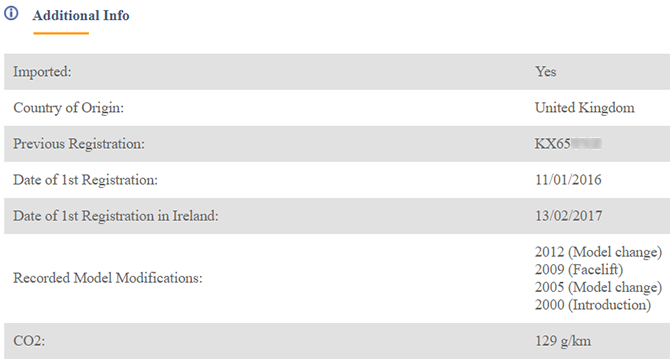
- If the road tax is in the high tax band, this may also assist you in negotiating the price down, as the majority of consumers tend to opt for vehicles that fall under the low tax band. This information is available in a MyVehicle report under NCT & Road Tax.
- Always ask if the vehicle has a spare key, as this can be costly and the dealer may reduce the price to accommodate this.
- If the vehicle has a large number of owners, this can affect the vehicle’s value, so bear this in mind when negotiating with the dealer.
This information is available in a MyVehicle report under Owners.
- If the vehicle has been in the dealer's stock for some time, this may assist you in negotiating. This information is available in a history check under the vehicle purchased date and sale history.
- Do your homework as if the vehicle current mileage/kilometers is above the average for the specific vehicle, this again may assist in negotiating the price down. This information is available in a MyVehicle report under Mileage Readings.
And when you feel like you can’t negotiate anymore or you have gotten the best price you can get, you can try and get the dealership to throw in little extras for you or add-ons. This could include extended warranties, free services for your car or extra wipers!
A warning about unscrupulous dealers
Our advice is always to be ultra vigilant when buying a used vehicle from an unscrupulous and untrustworthy dealer. These individuals will go to any lengths to make a sale and they do not care if the car has been clocked or even worse unsafe.
Some things to be aware of:
- You may be offered a dangerous and defective stolen or written-off car
- Check that the car’s mileage has not been reduced, more commonly known as clocking
- Original parts may have been replaced with sub-quality parts after passing the NCT
- Usage of sealants and other masking agents may hide corrosion or rust holes
- Display of fake NCT certificates and disks, Registration Certs or Motor Tax Disc
Buying from a private seller
Price is one factor when buying from a private seller. Most likely, because you are buying a used second hand car so you can take advantage of lower price compared to buying or financing a new car from a dealer. Private sellers also won't try and upsell you to extra warranties or services too.
There are things you need to remember though, when buying privately. Like any kind of purchase, it is very important to do as much homework on the car before you decide to buy, as there is very little legal protection if the car turns out to be faulty.
It is strongly advised that if you are thinking of purchasing a car from a private seller that you bring along with you a trusted mechanic or someone who knows more about cars than you do. All due diligence is needed when buying a car privately.
When you have found a car that you like on one of the classified websites or Facebook Marketplace etc. and you know you can afford the asking price, the first thing you need to do is to contact the seller. This way you can get a feel for the type of person they are and ask some vital questions.
- Are you the legal owner?
- Are you a car trader or a private seller?
- Are you happy with the car's condition?
- Why are you selling the car?
- What is the mileage on the clock?
- How long do you have the car?
- How many owners has the car had?
- Has the car a valid NCT
- Has the car got valid road tax?
- Has the car ever been crashed?
- Is the car written-off or categorised by an insurer?
- Is the car under finance?
- Is there a service history?
- Can you tell me any issues with the car?
- Does the car need any work done?
- Does the car have both sets of keys?
- Does the car have a warranty?
- When can I view and test drive the car?
- Will I be able to drive home in the car without issue?
- Is the price negotiable?
Once you have spoken to the seller and you are satisfied with their responses to your questions, we recommend you run a car background check on the car in question. If the report does not raise any concerns or alerts, you can then arrange to view the car at a convenient time and safe and secure location.
If you know very little about cars, we would always recommend that you bring a mechanic with you to give the vehicle a full appraisal both mechanically and the bodywork.
When buying from the private marketplace, we recommend the following:
- Arrange a viewing, preferably at the seller’s home
- Avoid car parks
- View in daylight
- Avoid viewing in rain
Additional Questions you can put to a car seller:
- Is there a spare wheel?
- Is there a wheel scissor jack and wheel wrench?
- Does the car have a wheel lock nut?
- Has the timing belt been changed recently? (If the vehicle has more than 60,000 miles, look for proof in service history)
- Does the car have a spare key?
- Does the car have a full service history (review)
After you have viewed the car and are happy that it is mechanically sound and is in the condition and price range that you want, the next thing to do is ensure that all of the vehicle’s identification and documentation numbers are correct.
The history check will contain a partially disclosed VIN number, the engine number and a partially disclosed VLC (Vehicle Licencing Certificate, Logbook) number such as the example numbers seen below.
Unlike the DVLA in the UK, the Department of Transport in Ireland has restrictions on what information can and cannot be displayed to the general public.
This partial number is for verification purposes which can enable you to connect the documents with the vehicle.
This is to protect against car crime such as the cloning of vehicles.
Check the Vehicle Identification Number (VIN) on the car matches the partially disclosed VIN number on your report and VLC number provided in your car history report.
Buying at an auction
Buying a car at an auction can be a great way to get a good bargain if you are well prepared and know what you are getting into.
A good place to start is to visit the auction website which is usually kept up to date and you can see what kind of cars they have available.
If you are not used to buying at a car auction, it is always a good idea to bring someone who knows about auctions and who has some mechanical knowledge about cars.
- Do your research
- Bring someone with mechanical knowledge
- Strictly stick to your budget
- Check the vehicle’s identification numbers
- Be aware as all cars are sold as seen
- Check if the car has been clocked by doing a vehicle background check
- Do not pay over the odds for any car ( get an iCAP vehicle valuation)
- Be aware that auctioneers only focus on the sale and not the buyer
- Have your finances in place as you must pay when you win the bid
- Auctions can be exciting so by all means, enjoy the experience
Importing a car from the UK
Many see great advantage in importing a used vehicle from the UK as there can be considerable savings, compared to an equivalent make, mode and year here in Ireland. UK cars also come with far higher specs than Irish cars and this can be a major factor in consumers buying in that jurisdiction.
There are a number of extremely important things you need to do to import a car from the UK including Northern Ireland into the Republic of Ireland. (please note: this is just a very brief commentary guide and you must satisfy yourself as to all legal procedures for importation)
-
Inform the British Authorities that you are exporting the car with the correct documentation.
-
It is imperative that you retain the V5C document from the seller or from the DVLA before you export the vehicle from the UK. The V5C is the equivalent of our Vehicle Registration Certificate.
-
Once ownership is transferred to you, you will then need to complete the V5C/4 section of the V5C document, “Notification of Permanent Export” and send it to the UK’s Driver & Vehicle Licencing Agency (DVLA), Swansea, SA99 1BD.
-
Hold on to the rest of your V5C document as you will need that for the Irish authorities.
-
After importation into Ireland you are required to book your VRT inspection with the NCTS within seven days of the vehicle arriving in the country. You should also have your UK car insured while it’s in Ireland.
-
The Revenue Commissioners require you to then fill out and present all compulsory documents at the VRT office or the vehicle will not be registered.
-
- Evidence of previous registration e.g. foreign certificate of registration, (V5C) a certificate of permanent exportation or a certificate of de-registration.
- Sales invoice showing the date of purchase/sale clearly indicated.
- Documentation verifying your name and address (Utility Bill, Bank Statement etc.).Personal Public Service Number (PPSN) e.g. a payslip, P60 or any documentation issued by the Revenue Commissioners which include your PPS number, name and address.
- Ensure you pay the correct VRT and VAT charges. If you can prove ownership and personal use of a vehicle in another jurisdiction for more than six months previously, you are not liable for VRT but you must present the vehicle for VRTinspection
-
VAT charges may apply on new cars less than six months old or have less than 6,000km on the clock. Vat is still payable, even if VAT was initially paid in another jurisdiction
-
After VRT inspection you will receive a receipt for your VRT payment with the new Irish registration number assigned to the vehicle and form RF100 which you will need to pay the relevant motor tax
-
After you have registered your car with the VRT office and had it inspected, paid your
-
VRT payable to Revenue, paid the relevant motor tax, you must then book your officially road-legal Irish car with Irish plates for its first NCT
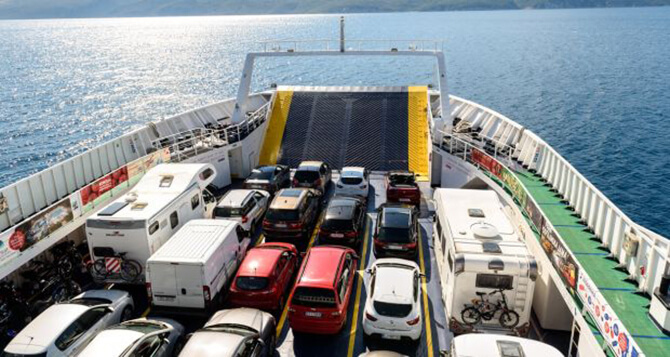
Best time of year to buy a used car ireland
What is the best time of the year to buy a used car? Timing is a big consideration when buying a used car and there are two things that you can take into consideration here.
- the seasonality for best price from a dealership
- the weather, to ascertain the physical condition of the vehicle
Best months to buy a car
Obviously, you can buy a car at any time of the year and this is common when buying from a private seller but there are some advantages in hitting the dealerships at specific times.
The months of October, November and December may very well be the best time of year to buy a car from a dealer from a financial point of view. Car dealerships work on sales cycles which are broken down into yearly, quarterly and monthly sales targets. Their sales strategies begin to come together late in the year, when they want to shift as many cars as possible before the end of the year.
Best day of the week to buy a car from a dealer
Shop early in the week also. Monday, Tuesday and Wednesday are the best times as the weekends are usually very busy in showrooms and you will not get the same attention from sales people. Mondays are particularly slow, so this is a good opportunity to get more attention and a better deal.
Just be aware that a dealership's sales deadline may not always line up with the calendar month but can sometime come a few days earlier. Walking into a dealership on the last day of the month may not be the best time for a good deal.
Best buying times for cars
- Convertibles - Winter is the best time to buy a cabriolet as the asking prices increase during the summer when they become more popular
- 4x4 Wheel drive - Summer may be the best time to buy AWD (All Wheel Drive) vehicles tend to be more popular in the winter so consider buying in Spring or Summer.
- The last selling day in January as dealers are eager to reach their first months sales target
- The last selling day in June is key as this is the last registration period for dealers to offload their 20(1) cars and make way for their 20(2) stock.
- The last selling days of December are also important for similar reasons before the new 21(1) stock is rolled out.
- May, June and November can be slow for new car sales as many consumers opt to wait for a better registration
- Weekdays are always quieter in dealerships than the weekend, so there are bargains to be had mid-week
Obviously, though, the best time to buy a car, whether used or new, is when you are ready and this could be at any time of the year when your budget is set.
Weather
As many may already know, the best time to view and inspect a vehicle is on a dry sunny day. While you can buy a car at any time of the year, the spring and summertime is great as you will not be rushed to get the viewing over because of inclement weather.
Rain on the bodywork can disguise a lot of imperfections so it's always best to view the car on a dry day as you will then be able to clearly see if there are any chips or dings in the paintwork.
Another good tip is to take a few steps back and consider how the sunlight reflects on the bodywork. Is the paintwork a consistent colour throughout? If it's not, it may indicate previous damage and touch-ups to the paint job and even if spurious parts have been used?
A car's paintwork can also give subtle clues about its history of the vehicle. Open the car doors and inspect the paint on the door frame against the paint on the factory painted brackets. If you notice different shades or paint colours, this may indicate that works have been carried out on the cars bodywork.
Check the car
Once you have contacted the seller to arrange a viewing, it is strongly recommended that you try to arrange for it to take place during the day as viewing in daylight will give you a better idea of the car's condition, particularly the paintwork.
It is not a good idea to view the car when it’s raining or wet as this will make you rush the inspection and the rain can also hide scratches and dings on the bodywork. Bring with you a mechanically-minded friend, or even pay your local mechanic, to inspect it for you.
Again if you have to view a car at night, bring a good torch. Meet the private seller at their home address and make sure it’s not a trader trying to disguise a sale.
Driving:
- When the car is started, check that all warning symbols on dashboard initially come on and then go off again
- Listen for any strange or loud noises whilst driving the car
- Bring the car for 10-15-minute drive and try to go up and down through all gears
- Test the steering to ensure road handling is good
- Test the brakes to ensure discs and pads are good
Outside
When checking a car, it's better to give it more than just the once over. You are going to have to check both the exterior and the interior of the vehicle carefully so you know exactly what you are buying. You certainly don’t want any surprises when you get the car back howe in the drive and discover some imperfections that you missed on first inspection.
- Walk around the vehicle and look for marks, scuffs, Scratches, etc
- Check that all panels line up correctly with no unusual gaps
- Check to see if the paintwork is all the same shade and quality
- Does bonnet open, close and line up correctly

Inside
Just as important as the exterior of the vehicle, most of us want a clean car and an immaculate interior if at all possible. A clean interior is not only important aesthetically but it can also be an indication as to the condition of the vehicle:
- Look for excessive wear and tear (steering wheel, seats, door handles, etc)
- Check for dampness on and under carpets
- Lift carpet in the boot and feel for dampness
- Check that all instruments work (every button, windows, seats, radio, etc)
- Check that the central locking works
Under the bonnet
One of the most common things people do when purchasing a car is to look under the bonnet to see the general condition of the engine compartment. Below are a few easy checks you can take and things to look out for.
- Check the brake fuel reservoir
- Check for oil leaks around the engine
- Check the oil level and condition of oil with the dipstick. Sludgy black oil could be a sign of engine damage or its not well maintained?
- Is there a milky oil cap? This could indicate that there is moisture mixing with the oil. This is a creamy sludge like mayonaise
- Check the engine coolant reservoir
- Check the timing belt and refer to the service history booklet that it has been changed at the relative time and distance
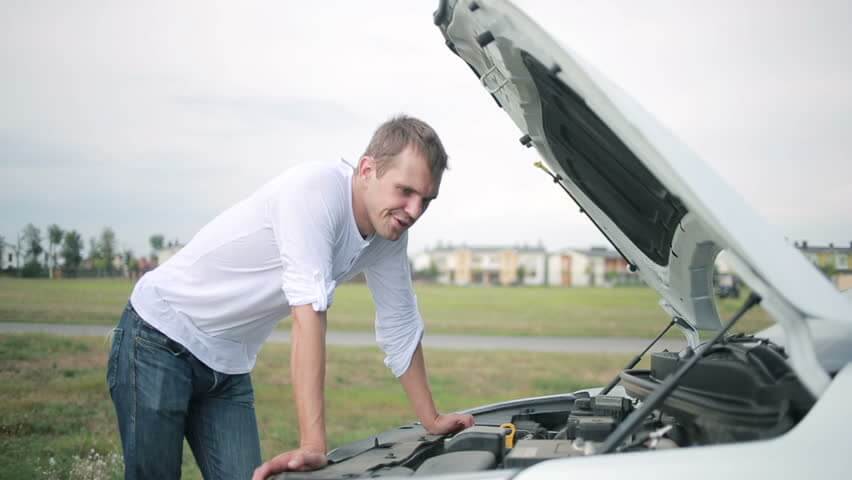
Test Drive
Test driving a vehicle is vital. This is your opportunity to make sure you are making the right decision and the car meets all your needs. Some Main dealers may even be prepared to let you test drive a new car for an extended time or even overnight, so definitely don't be shy to ask. If you cannot test drive the car yourself, have a qualified engineer inspect the car and test drive it for you.
- Start the car when the engine is cold. It should start straight away and the engine should not labour in any way
- Leave the car running and then check the exhaust for excessive noise as there could be holes in the exhaust
- Check the exhaust. A small bit of white steam-like smoke is fine but if there is blue smoke, there could be an internal oil leak
- Once the engine has been running for a few minutes, the temperature gauge should sit about half-way
- Before setting off on the test drive, turn the steering wheel and check for smoothness and ease of turn and any screeching, banging or knocking
- Test the handbrake by pulling it up just enough to apply a small braking force while trying to drive off. If the handbrake fails to hold the vehicle back, it may need some attention
- Test drive the vehicle on as many different road surfaces as possible,going up and down all the gears including reverse to detect any issues
- While on the test drive, listen out for any knocking, bangs or unusual noises and certainly do not let the seller distract you with chatter and turning up the radio.

Vehicle Documentation
Before you buy a used car it is vital that you view and verify the correct documentation that should accompany the vehicle.
It is important that you check the details of the car’s documentation accurately and that they match with the car. The seller of the vehicle will happily provide you with the legitimate documentation for the car.
When buying from a private seller, the first document you should receive is the vehicle registration certificate or the logbook for the car.
This document is providing proof of ownership for the vehicle and would be the most important document that provides information about the car.
It shows the registered owner of the vehicle that you’re looking at. You will receive a Vehicle Registration Certificate (VRC) if the vehicle is Irish or a V5C (UK Vehicle Registration Certificate) if the vehicle is an import from the UK on UK plates.
When buying a used car from a dealer or an individual, one of the most important things you will need to see is the service history of the vehicle. The service history of a vehicle is an extremely valuable piece of information when trading in your car and also from a dealer’s point of view when it comes to selling the car on to a buyer.
A service history shows that the car has been taken care of by their previous owner, therefore making it easier to resell in the future. A service booklet should contain all relevant information about its services to the car. This includes dates, correct mileage intervals, a description of the work that was carried out and official stamp and signature from a dealer, plus receipts to accompany the jobs.
A service history booklet is important for assessing the value of a vehicle. It can add value to the car depending on the extent of the service history and condition. When the car comes with a service booklet fully completed, the next owner will be likely to keep up the services in the future.
|
You should always get a car history check report from a trusted source before you buy a used car. MyVehicle provides the public with the most crucial and relevant background check information on used cars. We can provide you with a fair and true valuation as well as a history check on any Irish or UK registered vehicle, which will ensure that the vehicle was never stolen, imported, clocked, written off, or cloned. We provide crucial information that will mutually benefit Buyers and Sellers in the used car market.
|
A written warranty should also come with the vehicle when purchased from a main or independent dealer. The warranty should state what it covers and its duration. All warranties are different so always clarify what is and isn’t covered in the terms and conditions of your policy.
Get a sales receipt from the dealer or when purchasing from an individual at the time the vehicle is sold. The buyer and seller should sign the receipt which has their full details and identification on it. You should take a picture of both sides of the form plus a picture of the seller's ID as proof of purchase.
Obviously buying a secondhand in the UK is riskier than purchasing a new car but your risks can be significantly reduced at home or abroad, by sticking to the following guidelines.
Vehicle Registration Tax (VRT)
All vehicles into the Republic of Ireland must be registered within 30 days of their date of entry, except for certain vehicles kept by authorised motor traders or foreign registered vehicles brought into the country temporarily for holiday makers or for business purposes. The VRT is charged when a vehicle is registered in the State and gets Irish plates. In certain cases, you may be entitled to an exemption from VRT. If you don’t register your vehicle within the specified timeframe, Revenue or the Gardaí can seize the vehicle and it will only be released on the payment of a penalty.
When importing a vehicle into Ireland, you must have a valid Certificate of Conformity (CoC) and this has to be entered on the Revenue system before the new vehicle is registered. This CoC is basically a statement by the manufacturer that the vehicle conforms to EU standards, including safety. It will contain all the information produced by a manufacturer which is unique to each individual vehicle.
Motor Tax
To drive a car on public roads in Ireland you must have motor tax which is collected by local authorities. The type of motor tax you will be charged depends on the type of vehicle you have. All vehicle owners are obliged by law to pay motor tax to drive their vehicles.
You are also required by law to show evidence that you have paid your motor tax by displaying the current tax disc on the windscreen of your vehicle. It is considered a motoring offence not to display the current tax disc on your vehicle and you can receive a €60 fixed-charge fine if it is not displayed.
Private motor tax is based on the following:
- CO2 emissions bands for private cars registered since July 2008
- Engine capacity (cc) for private cars or vans registered since July 2008
- Unladen weight for commercial goods vehicles (unladen weight is the weight of a vehicle when not carrying a load)
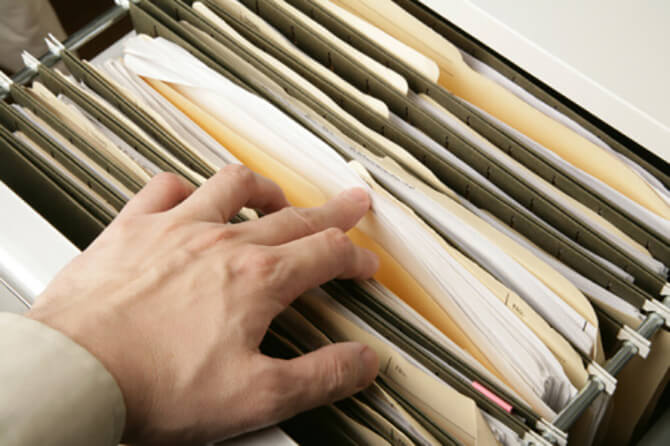
National Car Test (NCT)
The NCT test is a basic requirement for all private cars in Ireland. This test ensures that your car is roadworthy. If defects are found during the car test, you will receive a fail sheet and the vehicle must be repaired and brought back for re-testing. Only after a car passes the NCT will it be issued with an NCT Pass Certificate.
The test can identify potentially dangerous issues or defects in the vehicle. It is recommended that all vehicle owners have a good maintenance routine for their vehicle making sure it is in good working order, safe and fit for purpose on every journey. The NCT is conducted every 2 years for vehicles younger than 10 years old and vehicles more than 10 years old must get their NCT done annually.
Motor Vehicle Insurance
Motor vehicle insurance is a contract by which the insurer assumes the risk of any loss the owner or operator of a car may incur through damage to property or persons as the result of an accident. Motor insurance covers damage to someone else’s car, property or for personal injury to other persons where the insured is judged to be legally liable. There are three main categories of insurance in The Republic of Ireland.
An insurance company will take into consideration many factors when calculating car insurance. Most premiums will be based on a basic third party cover with the cost of extras added on and can be categorised into three basic types of premium as seen below.
Types of motor insurance policies
Third party insurance is the most basic cover you can have and this is the minimum required by law. There are restrictions and limits to this kind of cover which can leave you open to substantial loss in the event of an accident. If you are in an accident and you are at fault, then only your passengers and the driver and passengers of the other vehicle will be covered. Third party insurance does not provide cover for damage sustained in an accident to your car or if your car is stolen or goes on fire.
Third party, fire and theft is probably the most popular choice of motor insurance for Irish drivers. It covers you for loss of the vehicle through fire or theft and for any loss as a result of attempted fire or theft. Damage to property is also covered under this type of premium. You can also add on some optional extras with this type of insurance such as windscreen breakage.
Comprehensive insurance is the most expensive type of insurance you can get and this will cover you for almost every eventuality, for example:
- Damage done to the vehicle regardless of how it was incurred
- Life/accident insurance; loss of personal belongings from the car
- Cost of a hired car if the insured car is off the road as a result of an accident
- Windscreen breakage, etc. (A brand new car should be comprehensively insured.)
Other documents
Verify and make sure you have all these important Documents and numbers:
- Vehicle Registration Certificate (VRC)
- Vehicle Licensing Certificate Number (VLC)
- Full service history booklet
- Valid NCT Certificate
- Valid NCT Disk (displaying mileage)
- Valid Motor Tax Disk
- VIN / Chassis Number
- Engine Number
- View the Legal Owner’s name in the VRC
- Ask to view Identification to ensure this is the same person
- Take a photograph or photocopy of the logbook including the change of ownership page with names and signatures.
Check out our guide to replace lost vehicle documents
Diesel or petrol or hybrid
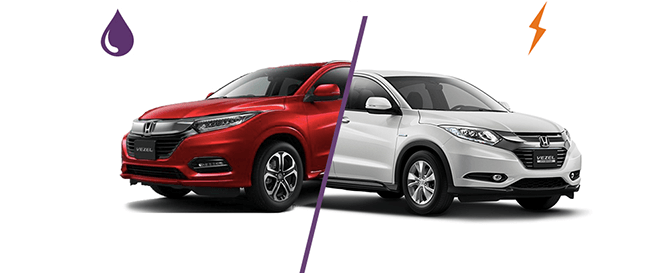
This one is quite an important question for a few reasons. There is obviously the main economic reason for making the right choice that suits your budget but many now will also consider the environmental factor, especially in light of the 2015 dieselgate scandal.
Many countries are going against the internal combustion engine (ICE) and plan to phase out petrol and diesel vehicles between 2030 and 2040.
Diesel vehicles are still the number one choice of engine in Ireland by far as this is what was pushed by past governments as environmentally friendly and cheaper fuel.
Although some are opting for fully-electric vehicles, this does not seem the most viable option for most of us at this time due to the lack of EV charging infrastructure and limited range on many of the cheaper electric cars.
Many would certainly find it hard to pay the high prices asked for some of the better ranged electric cars.
The four main hybrid configurations you can have are:
Types of Hybrid cars
- Fully-Hybrid (Self-charging)
- Mild-Hybrid
- Plug-in Hybrid Electric Vehicle (PHEV)
- Range-Extendable
Warranty
A car warranty is always good to have when purchasing a car as problems may arise in the first few months of owning the vehicle and it can give you a certain amount of confidence and peace of mind.
This is one main advantage of buying a car from a dealership or trader compared to private sale which really has very little comeback if something goes wrong with the vehicle.
The warranty may cover components such as the engine, electrics, gearbox steering, suspension and much more but it’s important to know what kind of warranty the dealer is willing to give you as they can vary tremendously.
Dealers regularly provide short-term warranties to cover cars or money-back guarantees for their used cars. The majority of dealers will offer customers an option of trading in your current car against the vehicle that you are considering purchasing, which in the majority of cases is then used as a down payment for your new vehicle and this can make it more affordable for the customer. Some dealers may even offer a cash back option, which means that you don’t put as much equity into the new vehicle, spreadings the remaining amount over the lifetime of the finance agreement.
Types of Car Warranties
- New car warranty (between 1-5 years)
- Used car warranty (between 3 months to 1 year)
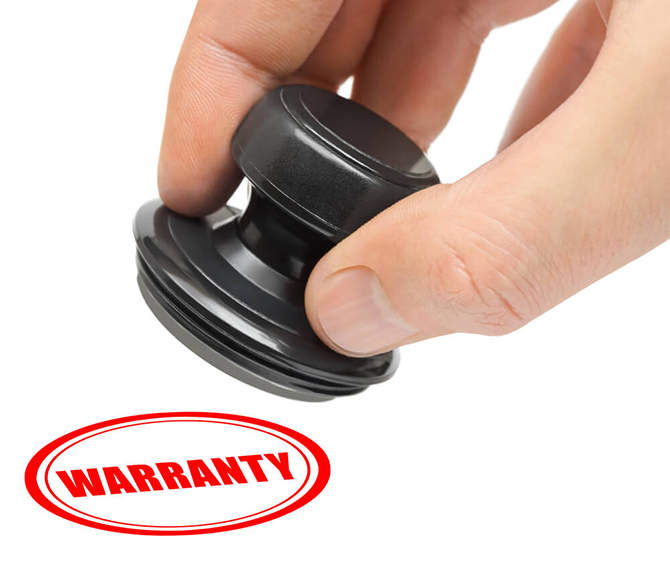
PCP (personal contract purchases)
A PCP repayment can be broken down into three basic parts:
- The Deposit
- Monthly Repayments
- Guaranteed Minimum Future Value (GMFV)
- End of term options
- Pay a final payment and keep the car
- Hand the car back
- Place the car as a deposit on another car
How to pay for a used car?
There is no doubt about it, that most car dealers prefer cash payments and bank transfers. Even if you take out a personal bank loan to finance the vehicle, it makes you a cash buyer.
If you are buying from a dealer, there is always the option of buying on finance such as PCP and this is probably the most popular method of payment in Ireland at this time.
If you decide to buy from a private seller, the best and safest way is to go to the bank with the seller, where you can review and exchange all documentation and make the money transfer.
Going to a bank with the seller is probably unlikely though and for most impractical so if you are paying by cash it is very important that you take all the necessary precautions that go along with any large cash transactions.
Safety tips when paying cash for a car:
- Do not go alone but take along someone with one
- Meet at the sellers home or place of work if possible
- If not a place of residence, meet in a public place
- Do not meet in supermarket car parks at night
- Avoid carrying large amounts of cash if possible
- Check the sellers I.D. and documentation
- Take a photograph of the VRC (Log book) before seller posts
- Make sure you get a receipt or something in writing if handing over money
- Above all, trust your gut instincts and if you feel unsafe; leave
Other things to consider before buying a used car
Here are some important things to do before you buy a used car to help ensure a smooth process!
Check Affordability
The first thing you will want to do is sit down and calculate, consider and budget for the type of vehicle you need or want. Obviously, you should be able to comfortably afford the car you want. There is a danger, though, that you can overspend on your budget. You may be able to meet the repayments now but what about in the future? If you take out finance on the vehicle, what if you lose your job, or somehow can’t make the monthly repayments for whatever reason? So there may be other factors that need to be taken into consideration, such as family needs versus personal wants and then there is the economy.
Financing
The next thing to do is decide your payment option, for example, will you pay by cash, hire purchase, PCP or a personal loan. Personal Contract Plans (PCP’s) have been one of the most popular ways in the last decade to finance a vehicle. These kinds of plans are a very attractive option for many as the interest rates are very low and repayments are a lot easier.
Here is a recap of the questions you should ask before buying a used car
Below we have outlined some of the questions you should ask the seller before you view the car.
- How long do you have the car?
- Why are you selling the car?
- What condition is the car in?
- To your knowledge, has it ever been crashed or damaged?
- Have you replaced anything on the car recently?
- Is there any outstanding finance on the vehicle?
- Is there a full service history?
- Is the car taxed?
- How long left before tax is due?
- Does the car have an NCT certificate?
- How long left until the NCT is due?
- Are you the legal owner?
- Has it been stored in a garage?
- What special features does the car have?
- Has the car been modified in a way that could affect insurance?
- Are you open to negotiation on the price?
- When and where can you view and test drive the vehicle?
It is so important when buying a used car to make an informed decision about exactly what to check for when inspecting the vehicle. Here is a list of things to look for in the car.
- Check that all the lines of the car’s bodywork are uniform
- Look for signs of repainting or overspraying or inconsistencies in coloring across all body panels.
- Check for uneven tyre wear as this could be a sign that the tyres are misaligned, which could be a sign of more serious issues
- Check for different or aftermarket headlights as different headlights could mean that the car was in an accident
- Check the pedal rubbers, gear stick and steering wheel for any signs of wear
- Check the odometer for any signs of alteration or interference and crosscheck the reading with the mileage record on your car check. You do not want a clocked car
- Make sure you have two sets of keys and check that they work on all 4 doors and the boot
- Ensure that all of the keys can start the ignition. Aftermarket cut keys may not be the correct kind of “transponder key” required to work with the car’s ignition and mobiliser
- During your test drive, test every gear up and down as well as reverse
- Check all lights, indicators and electrics are working properly
- Ensure that all car seatbelts are in full working order
- For extra peace of mind use MyVehicle.ie to check the car’s history, mileage etc. to ensure the vehicle isn’t subject to any outstanding finance
Pre-Purchase Inspection
Never buy a used vehicle unless first getting it inspected by a qualified mechanic or motor engineer. Here at MyVehicle.ie, we can provide you with a highly qualified Automotive Assessor to go to a location of your choice and carry out a detailed pre-purchase vehicle inspection. The engineer can tell you what the dealer may be trying to hide.
Always and every time carry out a comprehensive car report. This can show if a vehicle has been written off, clocked or if it has outstanding finance.
Ask to see the NCT Certificate and Check the Disk as this will display the current odometer or mileage reading. If the prior odometer reading is more than the current one it could indicate that the car was clocked.
All cars more than 4 years old are required by law to have a NCT certificate. Remember that it is possible to fake NCT’s so to check that it is not, you can visit www.ncts.ie and enter the registration number there. It will show you the expiry date of the last NCT. For commercial vehicles go to: www.cvrt.ie If you are buying a used car from a garage, ask for a warranty. If the dealer quibbles, you may consider walking away from the sale.
Why have an On-site Vehicle Inspection?
- Can potentially save lives by identifying major repair defects
- Can save money by highlighting any necessary work required
- Will clarify if the vehicle is safe and roadworthy
What is covered by an On-Site Vehicle Inspection?
The Pre-Purchase Vehicle Inspection Report includes:
- Full Check Report
- 101 multi-point check by Qualified Engineer
- Interior Vehicle Inspection
- Seat Belts and SRS Inspection
- Bodywork Exterior Inspection
- Rear Luggage Compartment Inspection
- Under-Bonnet Vehicle Inspection
- Wheels and Tyres Inspection
- Vehicle Brakes Inspection
- Steering and Suspension Inspection
- Vehicle Lighting and Electrics Inspection
- Under-body Vehicle Inspection
- Road Test
- Gives confidence that you’re making a good choice
The Law on driving defective vehicles
If you are stopped by An Garda Síochána under the Road Traffic Regulations while driving a defective vehicle, you will be liable for prosecution, so it’s important to make sure you are fully aware of the true condition of the vehicle before taking it out on the road.
It is an offence for a dealer to mislead you by providing false information in relation to a “products usage or prior history”You can find more information in legislation in The Consumer Protection Act 2007
Frequently Asked Questions when buying an used car
To sum up, here are some of the most important things you can consider when buying a secondhand car
Why is it important to purchase a car history check before buying a car?
By checking the car's history you can tell if the car was a previous write-off, a car that has been 'clocked' or with finance repayments outstanding.
What do I need to run a car history check?
All you need is the registration number of the vehicle and the mileage. Go to MyVehicle.ie, enter the registration number, then click Get Free Report and follow the simple instructions to get the background of any vehicle.
Why is it best to buy from a dealer?
It is always a good idea to buy from a reputable dealer if you can as there is not much legal recourse when buying a car privately if something goes wrong.
Should I buy a car that has no service history?
It is not a good idea to buy a car without service history as it suggests that the vehicle has not been taken care of by its previous owners. If a car does not have a complete and authentic service history you may want to consider walking away from the deal.
When buying a car, how many questions should I ask?
You should never be embarrassed about asking lots of questions. When it comes to buying a used car, you can never ask too many questions. This may frustrate the seller somewhat, but If there is hesitation or obfuscation, again walk away.
Why is car finance research important?
Get your finances in order well in advance of buying a car. Do your research and check for good deals at dealers, credit unions, banks, special offers etc. You may save a considerable amount of money especially now when the market is so intensely competitive.
Is it possible to speak to the previous owner of the vehicle?
It might be possible to speak with the former owner of the car if they were agreeable so you can ask the garage, dealership or reputable seller if it's possible to put you in touch. Seek some type of a guarantee and a six-month minimum would be a good start.
Should I trade-in my car?
If you are looking to trade-in your old car, it might be better to sell it privately first and then go to a dealership as a cash customer. Find out what price difference the dealer will come up with for a cash deal. You may get less when you sell your car privately but you could still be ahead if you can negotiate a better deal with the dealership by getting a lower 'cash' price for the newer one.
Should I be embarrassed about walking away from a car deal if it doesn’t sound good?
If you have any doubts whatsoever, no matter how small, the chances are your instincts are correct and so walk away.
Even though there is quite a bit of talk at the moment about used-value imports, especially from the UK, why not give your local dealer a chance as there is always a certain security in proximity.
Most importantly, don’t let the situation get the better of you. You may be very excited about the prospect of getting that new car, so keep your senses and wits about you and don’t get caught out because you haven’t done your due diligence.
Author
Justin Kavanagh
Justin Kavanagh is a recognised leader
in automotive intelligence and vehicle
data supply to the entire motor industry.
He has almost 20 years experience in
building systems from the ground up.
As the Managing Director of Vehicle
Management System, he understands the
need and importance of trustworthy and
reliable vehicle history and advice to
both the trade and the public.
Follow me on LinkedIn
